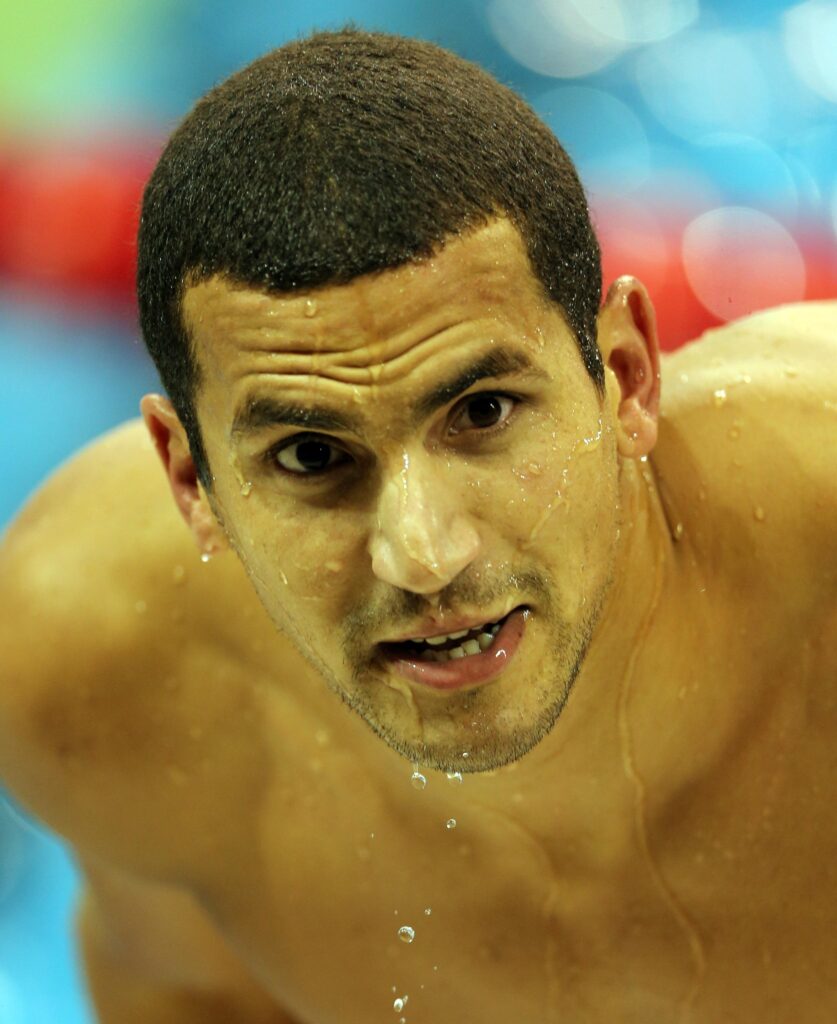Tunisian distance swimmer Rami Rahmouni has been forced to withdraw from the Junior World Championships following an injury sustained during training. The promising young athlete, regarded as one of Tunisia’s top prospects in long-distance swimming, will miss the highly anticipated event as he focuses on recovery. Rahmouni’s absence is a significant blow to the national team’s medal hopes and raises questions about the impact of the setback on his upcoming season.
Tunisian Distance Swimmer Rami Rahmouni Sidelined by Injury Ahead of Junior Worlds
Rami Rahmouni, one of Tunisia’s most promising young distance swimmers, has been forced to withdraw from the upcoming Junior World Championships following a sudden injury sustained during intensive training sessions. The 18-year-old athlete, known for his endurance and strong finishing sprints, suffered a muscle strain in his left shoulder, which medical staff confirmed requires several weeks of rest and rehabilitation. This development comes as a major setback for the Tunisian swimming contingent, which had pinned high hopes on Rahmouni’s performance in the 1500m freestyle event.
Coaches and team officials have expressed their disappointment but remain optimistic about Rahmouni’s long-term recovery and future prospects. The swimmer’s absence reshuffles Tunisia’s lineup, especially in distance categories where his experience and technique were considered crucial. Below is a brief overview of the impact his withdrawal has on Tunisia’s Junior World Championships roster:
| Event | Original Athlete | Replacement / Status |
|---|---|---|
| 1500m Freestyle | Rami Rahmouni | Withdrawn (Injury) |
| 800m Freestyle | Rami Rahmouni | Event Cancelled for Athlete |
| 400m Freestyle | Mohamed Sellami | Confirmed Starter |
- Medical team: Implementing strict rehabilitation protocols.
- Training impact: Team adjusting schedules to compensate.
- Future outlook: Rahmouni expected back for next season’s qualifiers.
Impact of Rahmouni’s Absence on Tunisia’s Competitive Prospects
Tunisia’s hopes for a strong showing at the Junior World Championships have taken a significant hit with Rahmouni’s injury withdrawal. As one of the country’s top distance swimmers, his absence leaves a void that is hard to fill given his consistent podium finishes and experience on the international stage. The national team will now have to rely heavily on less seasoned athletes who, while talented, lack the competitive maturity Rahmouni brings to the pool.
The ripple effects of missing Rahmouni extend beyond just medal prospects. The morale and strategic dynamics of the team are also impacted as coaches have to swiftly recalibrate training regimens and event entries. Key factors contributing to Tunisia’s current challenge include:
- Reduced depth in long-distance events where Rahmouni dominated.
- Pressure on emerging swimmers to perform under heightened expectations.
- Potential shift in Tunisia’s overall medal tally projections.
| Event | Rahmouni’s Personal Best | Current Tunisian Contender | Medal Probability |
|---|---|---|---|
| 1500m Freestyle | 15:12.34 | Amir Ben Salah | Low |
| 10km Open Water | 1:59:45 | Malek Trabelsi | Moderate |
| 800m Freestyle | 8:03.67 | Youssef Khedher | Low |
Recovery Strategies and Expert Recommendations for Junior Athletes Facing Injuries
Injuries among junior athletes like Rami Rahmouni highlight the crucial need for tailored recovery protocols that address both physical and psychological aspects of healing. Experts emphasize the importance of early intervention and multidisciplinary care, combining physiotherapy, controlled rest, and gradual reintroduction to training. Coaches and medical teams are advised to prioritize communication, ensuring that young athletes understand the recovery timeline and avoid premature returns that could aggravate the injury.
To optimize recovery outcomes, specialists recommend incorporating these key strategies:
- Customized Rehabilitation Plans: Focused exercises adapted to the injury type and the athlete’s age and development stage.
- Mental Health Support: Psychological counseling to manage the stress and frustration from forced inactivity.
- Nutrition Optimization: Diet tailored to promote tissue repair and immune function.
- Regular Progress Assessments: Objective tracking of recovery milestones to inform training adjustments.
| Recovery Stage | Focus Area | Typical Duration |
|---|---|---|
| Acute Phase | Inflammation Control & Pain Management | 1-2 weeks |
| Rehabilitation | Range of Motion & Strengthening | 3-6 weeks |
| Return to Sport | Functional Training & Conditioning | 4-8 weeks |
Closing Remarks
Rami Rahmouni’s withdrawal from the Junior World Championships due to injury is a significant setback for both the athlete and Tunisian swimming. As one of the country’s most promising distance swimmers, Rahmouni had been expected to make a strong impact on the international stage. His absence will be felt keenly by fans and teammates alike, but the focus now turns to his recovery and return to competition. The Tunisian swimming community remains hopeful that Rahmouni will overcome this hurdle and continue to build on his impressive career in the future.





